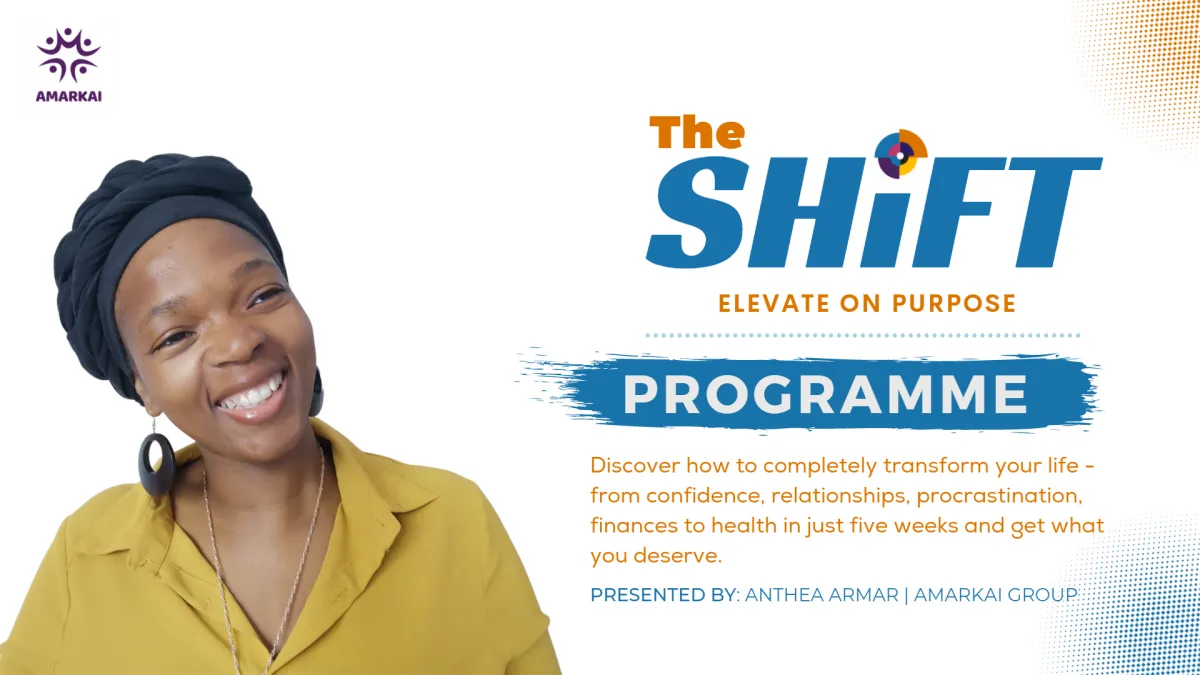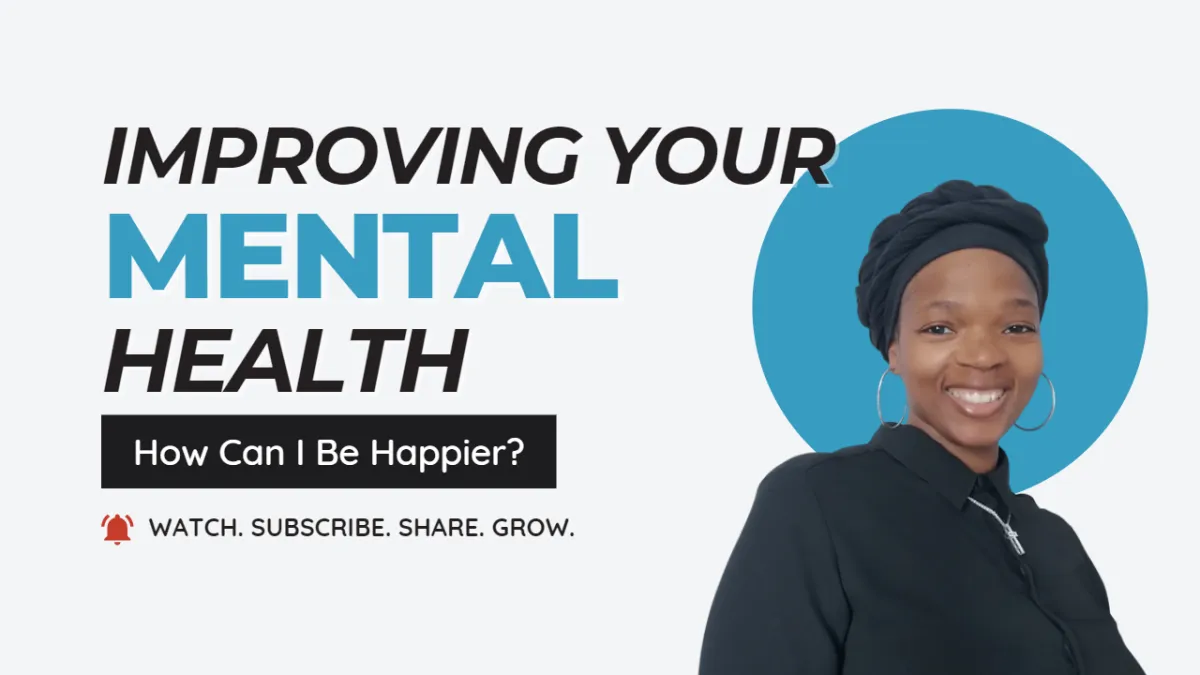HANDLING DIFFICULT CONVERSATIONS
5 Tips for Handling Difficult Conversations
…so you can stop avoiding conflict and strengthen your relationships!
Author: Anthea Armar
Date Published: 2 June 2022
Topics: Conflict Resolution, Communication, Anxiety, Confrontation, Fear
If there is no conflict, then something is wrong! Despite what most people think, conflict can be positive. It means that there are a minimum of two parties who have differing opinions or beliefs, rather than everyone saying yes in agreement, whether they genuinely agree or not, simply to avoid being challenged.

Image Source: Brett Jordan (Unsplash)
Conflict, when viewed differently, provides an opportunity to improve communication, develop relationships and share knowledge and information. It’s a ‘teachable moment’ where perspectives can be shared in order to expand minds and encourage empathy and understanding.
Why do people fear conflict?
Effective communication is the cornerstone of great relationships. Whether you're communicating with friends, family, colleagues, your partner, or even strangers, everything goes smoother with effective communication. You get more of what you want and the other party is happier too.
There will be times when you clash with others due to a difference in perspectives, attitudes, beliefs, requirements, stress, personality differences, values, lack of transparency and much more. It isn’t the opinion you hold that you fear, but the confrontation of those opinions to someone else.
In the workplace, when you do not choose the people you work with, conflict can be more challenging and be a result of other factors. According to the 2008 CPP Global Human Report ‘Workplace Conflict and How Businesses Can Harness It to Thrive’:
- 85% of employees deal with conflict on some level
- 49% of conflict is a result of personality clashes and “warring egos”
- 34% of conflict is caused by stress in the workplace
- 33% of conflict is caused by heavy workloads
- 27% of employees have seen conflict lead to personal attacks
- 25% of employees have seen conflict result in sickness or absence
- 17% cited a clash of values as a major causative factor
The fear of conflict may also stem from your upbringing. You may have grown up, or spent a significant amount of time, in a dismissive or overcritical environment, been in an abusive relationship, had a hard break up or have not been given the opportunity to express your emotions. Due to this, you may have developed one or many fears associated with conflict:
- You may end up with a negative outcome
- You feel you may be annoying others
- You do not want to be dismissed
- You cannot trust others reactions
- You fear failure
- You do not want to be ‘wrong’ in others eyes
- You may not be liked because of your opinions
- You may get an argumentative or emotional response
- You have anxiety
"The quality of our lives depends not on whether or not we have conflicts, but on how we respond to them." Thomas Crum
Without being aware of your fear, you may use conflict avoidance, inadvertently becoming a people pleaser, as it may be comfortable to go along with others rather than potentially upset them.
How can you manage difficult conversations to achieve positive outcomes?
It is your perception of the conversation that is creating the fear or anxiety, rather than the conversation itself. Separating the two can help you focus on tackling the issue at hand. Having difficult conversations, with grace, can be beneficial to strengthening your relationships.
If you need to express yourself, give constructive feedback or any other conversation that you feel may be difficult, use these tips the next time you feel anxious about potentially facing conflict or confrontation:
1. Face your fear

Image Source: Aaron Burden (Unsplash)
Decide that the very thing you fear is the very thing you will face. It can be tempting to put off having difficult conversations because of the underlying anxiety being felt. However, not dealing with the issues can make them worse and prolong any anger, resentment or anxiety you feel.
Find the courage to face the other person and make the conversation happen.
By initiating the conversation, you can retain an element of control that may ease your anxiety.
2. Prepare for your conversation
You do not have to jump straight into the conversation. Give yourself some time by scheduling the conversation for another time, so you have enough time to prepare.
One aspect of the conversation you can control are the issues you choose to address.
Get clarity on these by identifying what you feel the issues are and consider all aspects of your concerns.
Try to find the heart of the issues, so you don't get lost during the conversation. A good analysis can save you time and effort later.

3. Decide on the positive outcome you wish to achieve

Image Source: krakenimages (Unsplash)
To achieve a positive outcome, you need to be clear about what you want to accomplish by having this conversation. Considering this ahead of time will help you to avoid getting distracted, going off topic and influencing the direction of the conversation.
Think about:
- what kind of outcome would you like?
- what changes would you like to see?
- are you seeking an apology?
- what are you offering?
4. Control your emotions
The more emotionally charged you are, the more challenging it is to stay on topic and address the issues at hand. If you are angry, hurt, frustrated or upset, you are less likely to achieve the positive outcome you desire.
Controlling your emotions may not be easy, but it's important. Difficult conversations can dissolve into chaos if emotions take over. Try focusing on the other person's feelings and long-term impact of your behaviour.
Silence can be used to give you both a break and a chance to figure out what to say next. It can help you analyse the previous words. Pauses can also help you both maintain calm.

5. Focus on the relationship

Image Source: krakenimages (Unsplash)
Friends, colleagues, spouses, family members, and others have unique relationships with you. The way you talk to them will stay in their memory.
The issue you are currently facing is part of the development of this relationship; a hurdle.
Focus on this conversation being the catalyst for jumping over that hurdle to move your relationship to the next level where more understanding, trust and compassion exists.
"How you choose to respond to challenges will determine whether you will be driven by freedom or fear." Anthea Armar
Your Conflict Resolution Checklist
Instead of avoiding conflict, resolve it. Not only will this benefit the relationships you have, it will also allow you to challenge your own beliefs about conflict, confrontation and being able to unapologetically share your opinions without feeling like something negative will happen:
- Face your fear - be aware of the reason behind your fear or anxiety so that you can clearly identify what the issues are. Use this as an opportunity to speak your truth; to yourself and others.
- Prepare for your conversation - schedule the conversation for another time so that you can prepare for the issues you wish to discuss. Make a list of all your concerns ahead of time, so you can stay on track during the conversation.
- Decide on the positive outcome your wish to achieve - start from the end in mind. Decide what you want to get out of the conversation, so you can stay focused on a positive outcome and avoid too many distractions.
- Control your emotions - during the conversation, you'll benefit from controlling your emotions. Focus on staying positive and calm. Try to see the issues from multiple perspectives and the other side.
- Focus on the relationship - remember that this is an opportunity to resolve any issues that can help your relationship to grow and give you greater understanding of others perspectives.
Conclusion
Conflict can be a trigger for an underlying fear. The response to that fear may be drawn from experiences you have had in your past, making avoiding confrontation the easiest thing to do.
Difficult conversations are easy to ignore, but ignoring them is a slippery slope into frustration and creating additional tension in your relationship.
Instead of hiding from the issues, consider how you can resolve them. Your relationships will benefit greatly when you can work together to find solutions. Learn to handle these tough conversations with grace using these conflict resolution strategies and, over time, you'll find fewer and fewer issues that you have to resolve.
Want to dive deeper?
Amarkai Group offers a variety of organisational coaching and wellbeing workshops that focus on challenging perspectives and building confidence to communicate more effectively with others.

We focus on identifying and challenging limiting beliefs and creating alternative ways to express themselves more assertively and break down communication barriers.
Decide to become a high performing organisation. Contact us today to learn more about coaching or workshops to improve communication in your organisation.
“Anthea presents a lot of sound information for creating the business you want. She emphasizes that our own transformation is what is needed to move forward and that we create what we want-master of our business and our life. We create what we choose. She also challenges participants to get into action-don't keep waiting for amazing to come to you-create it!”
Anonymous
Liked this blog? Be sure to share.
How do handle difficult conversations? Let us know in the comments.
© AmarkaiGroup.com ・All Rights Reserved・Terms & Conditions・Privacy・Cookie Policy・Site by Christa Potter














